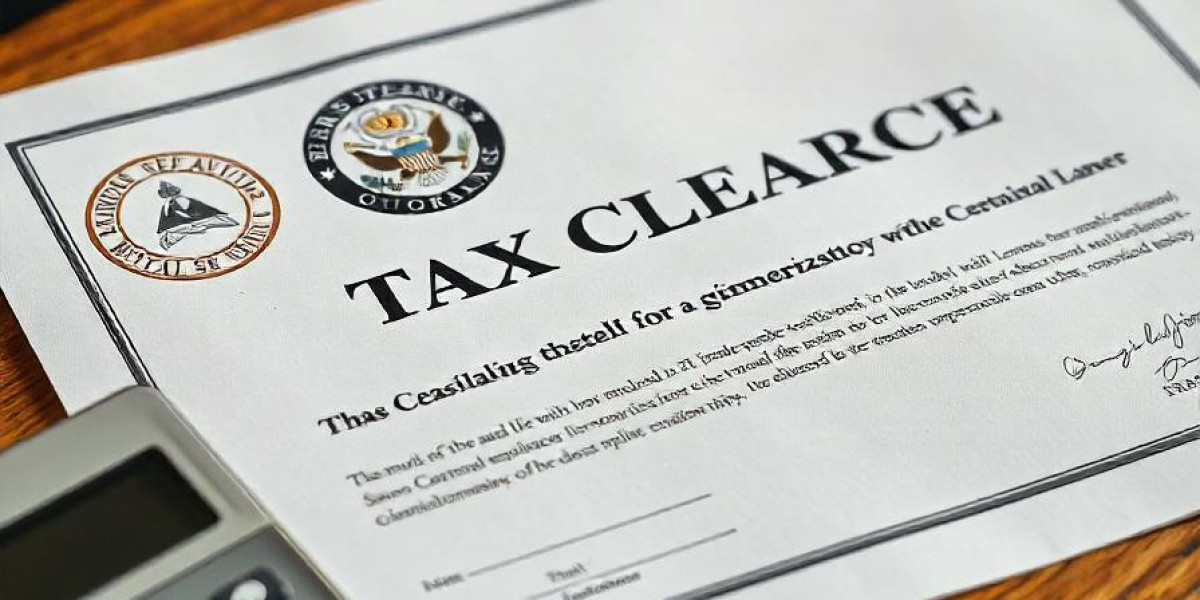What is a Tax Clearance Certificate?
A Tax Clearance Certificate is essentially a stamp of approval from tax authorities, signifying that the applicant has paid all due taxes and fulfilled reporting requirements. This clearance often applies to income taxes, payroll taxes, sales taxes, or any other levies that may be relevant in a particular jurisdiction. The certificate confirms that an individual or organization is in good standing with tax authorities, free of unresolved liabilities that might otherwise jeopardize financial dealings.
Why is a Tax Clearance Certificate Important?
The Tax Clearance Certificate is valuable for several reasons, both for the applicant and for any entities with whom they wish to engage in business:
- Proof of Compliance: A TCC demonstrates that an individual or business has adhered to tax laws, which can boost credibility and trustworthiness.
- Eligibility for Government Contracts: In many countries, businesses bidding for government contracts or grants must provide a TCC to demonstrate compliance with tax obligations.
- Facilitates Loan and Credit Approval: Banks and financial institutions often require a tax clearance certificate when considering loan applications, especially for larger sums.
- Business License Renewals: Some jurisdictions require a TCC as part of the business license renewal process, ensuring that companies are up-to-date with taxes before they can continue operations.
- Immigration or Work Permit Applications: In some cases, tax clearance may be necessary for immigration processes, particularly when obtaining work permits or visas for employment in foreign countries.
How to Obtain a Tax Clearance Certificate
The process of obtaining a Tax Clearance Certificate varies depending on the country and specific tax authority, but generally involves a few key steps:
- Submit an Application: Individuals or businesses typically need to submit a formal request for a TCC. This can often be done online or by filling out specific forms provided by the tax authority.
- Provide Required Documentation: Applicants may need to supply tax returns, financial statements, or other documentation proving that taxes have been paid in full.
- Tax Compliance Review: The tax authority will review the applicant's tax records to confirm that there are no outstanding obligations. This includes checking for any unpaid taxes, penalties, or interest.
- Clearance Issuance: Once the tax authority confirms compliance, they will issue the certificate. The document may be valid for a specific period or for a particular purpose (such as a single business transaction).
- Regular Renewal: In some jurisdictions, TCCs must be renewed periodically to maintain validity. Businesses especially may need to reapply each year or before starting new projects.
Types of Tax Clearance Certificates
There are typically different types of tax clearance certificates, depending on the purpose and specific requirements:
- General Clearance Certificate: This certificate serves as a general indication that the taxpayer has met all tax obligations as of the issue date.
- Project-Based Certificate: Some TCCs are issued for a specific project or contract and may only be valid for the duration of that project.
- Conditional Certificate: In cases where there is a minor tax discrepancy that the taxpayer is resolving, tax authorities may issue a conditional TCC, pending full compliance.
- Annual or Periodic Certificate: Some tax authorities issue clearance certificates on an annual basis to businesses that maintain regular tax compliance.
When is a Tax Clearance Certificate Required?
A Tax Clearance Certificate may be necessary in several instances:
- Bidding on Government Contracts: Most governments require companies bidding on public sector contracts to provide a TCC to ensure they are tax compliant.
- Renewing Business Licenses: Many jurisdictions require businesses to provide a TCC to renew licenses or permits, preventing delinquent taxpayers from continuing operations.
- Corporate Transactions: During mergers, acquisitions, or significant transactions, a TCC may be requested to confirm there are no outstanding tax liabilities.
- Loan Applications: Financial institutions often require a TCC from business clients seeking credit or loans as proof of financial health and tax responsibility.
Common Challenges in Obtaining a Tax Clearance Certificate
Securing a Tax Clearance Certificate can sometimes be challenging, particularly if there are unresolved tax issues or discrepancies in past returns. Some common challenges include:
- Outstanding Liabilities: If there are any unpaid taxes or penalties, a TCC will not be issued until these are resolved.
- Incomplete Filings: Missing or incomplete tax filings can delay the clearance process.
- Extended Processing Times: Depending on the jurisdiction, the clearance process may be lengthy, especially if the application requires an in-depth review.
- Legal Disputes: Tax disputes or audits in progress can also complicate and delay TCC approval until the issues are fully resolved.
The Growing Importance of Tax Clearance Certificates
As governments increasingly emphasize tax compliance and transparency, the demand for tax clearance certificates is growing. Global anti-corruption initiatives and financial integrity measures have made TCCs essential in both public and private sectors. Additionally, the digitalization of tax systems is simplifying the process of applying for and issuing TCCs, making it easier for individuals and businesses to access these important documents.
Conclusion: Building Trust and Compliance with a Tax Clearance Certificate
The Tax Clearance Certificate is a vital document for anyone involved in significant financial transactions, business dealings, or government contracts. It represents more than just a formality; it is a tangible sign of compliance, integrity, and financial responsibility. By helping to prevent tax evasion, supporting financial transparency, and promoting public trust, tax clearance certificates play an important role in the overall health and accountability of both individuals and businesses.








